Politics
Elections, Not Erections: Senator Natasha’s Blistering ‘Apology’ Shakes Nigerian Senate
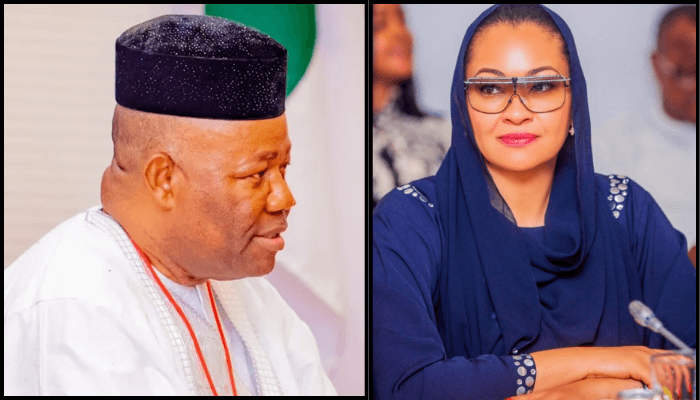
By Our Correspondent
In a dramatic and satirical twist that has sent shockwaves through Nigeria’s political landscape, Senator Natasha Akpoti-Uduaghan has issued a scathing open letter to Senate President Godswill Akpabio, mockingly framed as an apology but loaded with biting sarcasm and pointed criticism.
Titled “Satirical Apology Letter,” the missive, purportedly penned from the senator’s office, offers an exaggerated and theatrical “apology” for what she described as the “grievous crime of possessing dignity and self-respect” in the exalted presence of the Senate President.
Steeped in irony, Senator Natasha mockingly “acknowledged” her supposed failure to understand that success in certain political circles is not necessarily achieved through merit but through “compliance of a more personal nature.”
“How remiss of me not to understand that my refusal to indulge your… ‘requests’ was not merely a personal choice, but a constitutional violation of the unwritten laws of certain men’s entitlement,” she wrote, making a thinly veiled reference to alleged inappropriate expectations from figures within the Senate leadership.
She went further, humorously lamenting the “catastrophic consequences” of her independence: “legislation delayed, tempers flared, and the tragic bruising of egos so large they require their own postcodes,” she quipped.
In a fiery climax, Natasha pointedly apologized for prioritizing “competence over capitulation, vision over vanity, and the people’s mandate over private dinners behind closed doors.” Her sharp words left little doubt that the letter was not an admission of guilt, but a bold act of political defiance.
Perhaps the most stinging line came in her parting shot:
“Please find it in your magnanimous heart — somewhere buried deep beneath layers of entitlement — to forgive this stubborn woman who mistakenly believed that her seat in the Senate was earned through elections, not erections.”
She signed off the letter with a powerful affirmation of her principles, describing herself as:
“Unafraid, Unbought, and Unbroken.”
The letter has since ignited widespread debate across the country, drawing both commendation and condemnation. While many praised it as a necessary exposé of entrenched chauvinism and entitlement within Nigeria’s political elite, others accused the senator of being unnecessarily provocative and disrespectful.
Regardless of the divided opinions, Natasha Akpoti-Uduaghan’s satirical apology has reignited urgent conversations about integrity, gender dynamics, and the abuse of power within Nigeria’s democracy — a conversation that, it seems, is only just beginning.
Politics
BREAKING: Former Deputy Minority Leader, S.A Political, Hon. Muhammad A. Bello Dumps APC Joint ADC in Gombe
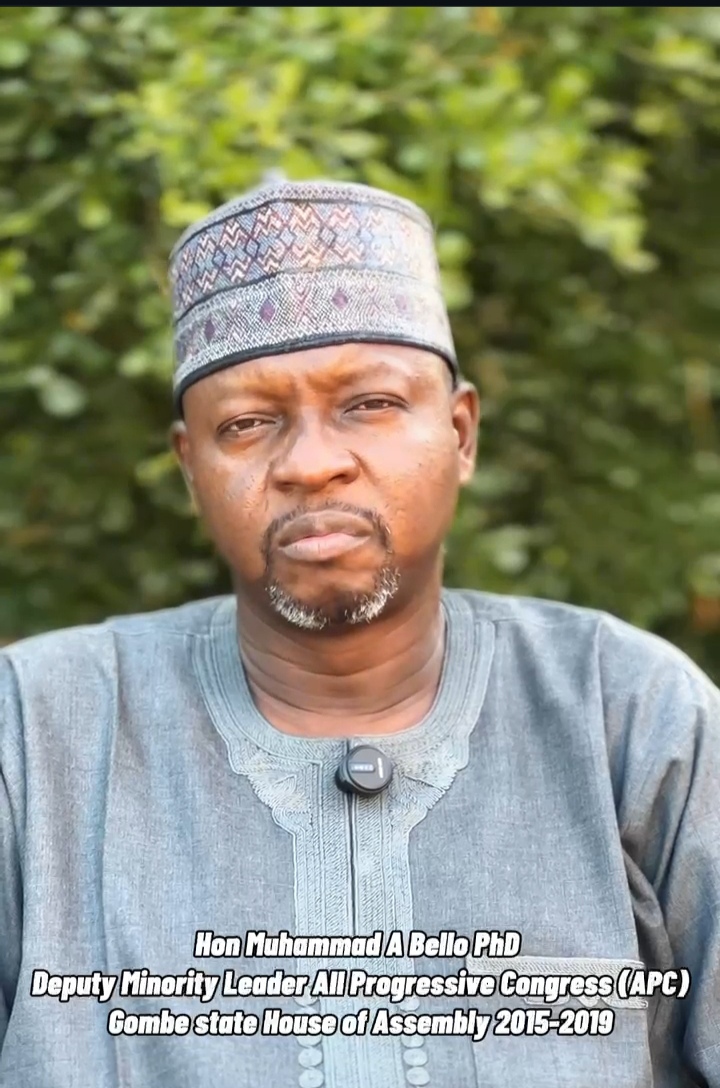
By Editor Daily Facts
In a major political development that could shake up the local political landscape in Gombe State, Hon. Muhammad A. Bello, PhD, former Deputy Minority Leader of the Gombe State House of Assembly (2015–2019), has formally resigned his membership from the All Progressives Congress (APC).
In a resignation letter dated August 4, 2025, and addressed to the APC Chairman of Bolari East Ward, Gombe Local Government, Dr. Bello cited “personal reasons” for his decision to leave the ruling party. The letter, which has since gone viral within political circles in the state, marks the end of an era for a politician widely regarded as one of the founding pillars of the APC in Gombe South.
> “This is to officially tender my resignation from the All Progressives Congress (APC) with immediate effect due to personal reasons,” he wrote.
Hon. Muhammad A. Bello was the first lawmaker to represent Gombe South Constituency under the APC platform when the party emerged as a political force in the state. He also served as Deputy Minority Leader during his term in the State Assembly and was later appointed the first Special Adviser on Political Matters to the Governor of Gombe State under the APC-led administration.
In the resignation letter, Dr. Bello expressed his appreciation to the party, saying:
> “I find it imperative to say a big thank you to the leadership and members of the party for the rare opportunity given to me.”
Political Implications
Although Dr. Bello did not disclose his next political move, insiders suggest that his exit from the APC may not be unconnected to ongoing internal crises and shifting alliances within the party structure at both state and national levels. His resignation could also signal a realignment ahead of the 2027 general elections.
Political observers believe that his departure could influence other key stakeholders in the Gombe South axis, especially those who consider him a grassroots mobilizer and voice of political experience in the region.
Attempts to reach APC officials in the state for official comments were unsuccessful as of press time, but party loyalists in Bolari East Ward expressed shock over the development, calling it “a big loss” to the party.
As the political atmosphere continues to heat up in Gombe and across Nigeria, Dr. Bello’s resignation adds to the growing list of notable defections that may reshape the balance of power ahead of future electoral contests.
Politics
Democracy Not for Sale Ralph Nwosu: Former ADC Chairman I Chose Nigeria Over ₦10bn, Three Ministerial Positions
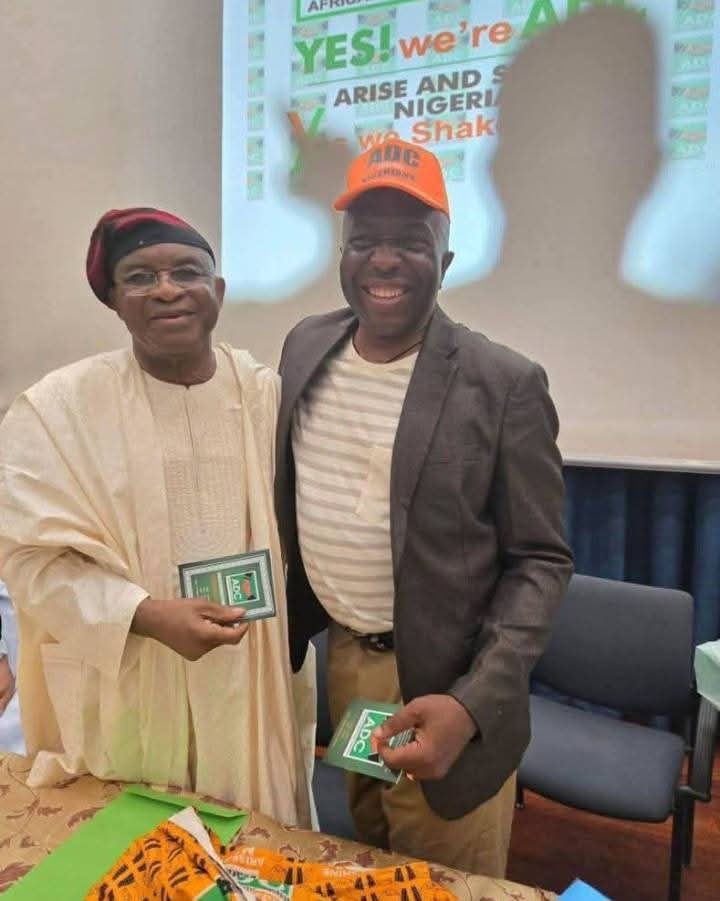
By Our Correspondent
In a dramatic revelation that has sparked national conversation, the immediate past National Chairman of the African Democratic Congress (ADC), Chief Ralph Okey Nwosu, has disclosed that he turned down lucrative offers—including three ministerial slots and a staggering ₦10 billion—in exchange for halting the party’s role as the principal opposition coalition platform in the country.
Addressing newsmen in Abuja on Wednesday, Nwosu stated that despite pressure from powerful political figures and close associates, he made the “difficult but patriotic decision” to prioritize Nigeria’s democratic stability over personal gain.
“I do not want Nigeria to become a one-party state. Even though I was advised by people close to me not to give up my position as National Chairman, I chose Nigeria first,” Nwosu declared.
The former chairman, who led the ADC for over a decade, is credited with transforming the party into a credible third force in Nigerian politics. Under his leadership, the ADC became a strategic platform for a coalition of opposition parties and civil society groups seeking to challenge the dominance of the ruling party.
According to Nwosu, the offer to step down the coalition move came at a critical time when democratic principles in Nigeria were being tested. He described the attempted inducement as part of a larger effort to weaken the country’s multiparty system.
“Today, I am happy as a fulfilled man who is paying the price for a better Nigeria,” he added, visibly emotional.
The Coalition for ADC, a growing alliance of pro-democracy movements, political parties, and stakeholders, has since commended Nwosu for his integrity and sacrifice. Many see his decision as a bold stand against corruption and political manipulation.
Political observers believe Nwosu’s stance has not only preserved the credibility of the ADC but has also inspired a renewed push for a more vibrant and united opposition in the country.
Reactions have begun to pour in from political analysts, civil society groups, and party leaders, with many hailing Nwosu’s action as “historic” and “courageous,” especially in a climate where political compromises are often influenced by personal benefit.
With the 2027 general elections on the horizon, Nwosu’s revelation is expected to energize coalition efforts and encourage broader participation from disenchanted Nigerians seeking credible alternatives.
Politics
I’m Not Running in 2027 Engineer Aliyu Kombat-My Mission Goes Beyond Politics
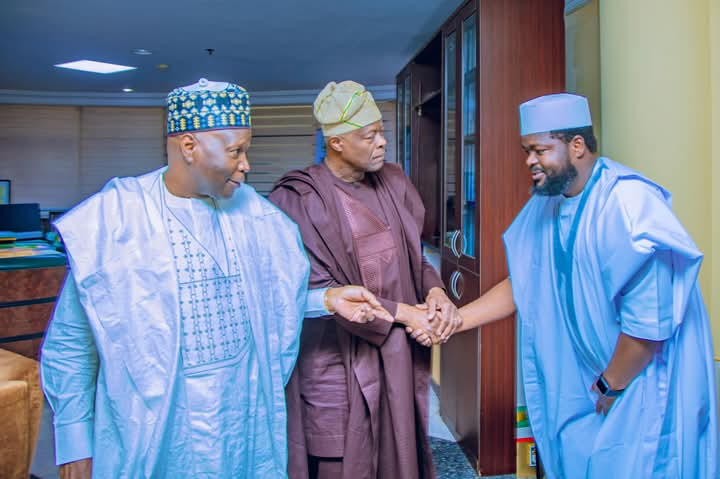
By Our Correspondent
In a heartfelt and reflective press statement released Monday, renowned philanthropist and political figure, Engineer Aliyu Muhammad Kombat, has formally announced his decision not to contest in the 2027 General Elections, despite widespread calls and public encouragement urging him to do so.
Opening his statement with deep gratitude to Almighty Allah and the people of Gombe State, Kombat expressed appreciation for the unwavering support he has received over the years, calling it a “constant source of strength and inspiration.”
“I remain deeply humbled and eternally grateful for the love you have shown me through your words, actions, and persistent belief in my capacity to serve,” he said.
After what he described as “deep reflection and wide consultations with my family, mentors, elders, political allies, and trusted friends,” Kombat revealed that the decision to step aside from the 2027 political contest was not made lightly.
“I acknowledge your disappointment, and I ask for your understanding and prayers,” he said, in a direct appeal to supporters who had anticipated his candidacy.
While stepping back from the electoral race, Kombat made it clear that he remains loyal to the All Progressives Congress (APC) and pledged full support toward the party’s continued growth at all levels.
“I remain firmly committed to the ideals of my party, the APC, and I pledge my total support for the continuous progress of the party at all levels,” he affirmed.
Kombat, who is also the founder of the Velocity Humanitarian Foundation, reassured the public that his withdrawal from electoral politics will not in any way affect the Foundation’s operations.
“That noble initiative remains alive, active, and fully committed to its core mission — delivering compassion, empowerment, and dignity to the most vulnerable in our society,” he said.
The Velocity Humanitarian Foundation has gained regional recognition for its focus on youth empowerment, healthcare outreach, educational support, and food security initiatives, especially in underserved communities across Gombe State and beyond.
In closing, Kombat left the door open for future political engagement, stating:
“Should the future present another opportunity to serve, under compelling and unavoidable circumstances, I will answer that call with the same spirit of duty and sacrifice that has always guided me.”
As reactions pour in across political and civil society circles, many have praised Engineer Kombat for his humility, sincerity, and unwavering commitment to humanitarian work, even outside of the political spotlight.
The statement has already begun generating wide interest across political and civic platforms in Gombe and beyond, with many describing it as a “rare act of selfless leadership in today’s political climate.”
END
-

 Leadership12 months ago
Leadership12 months agoBreaking: African Union Appoints Pantami as Co-Chair of the 4th Industrial Revolution Policy Council
-

 Politics1 year ago
Politics1 year agoFormer Gombe State APC Promoters Forum Chairman Attacked Following Political Commentary
-
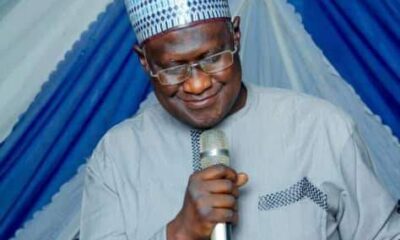
 Appointment10 months ago
Appointment10 months agoGombe State Indigene, Appointed New Vice Chancellor (ATBU)
-
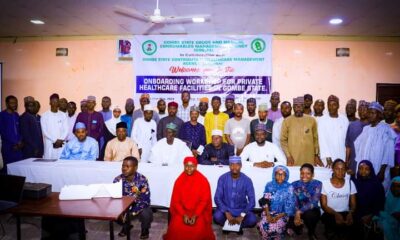
 Health1 year ago
Health1 year agoGombe State Organizes Onboarding Workshop for Private Healthcare Facilities
-
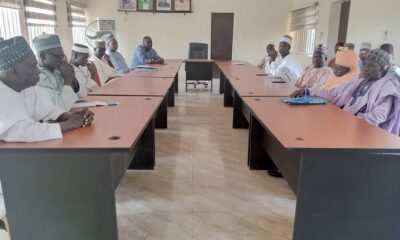
 Water1 year ago
Water1 year agoGombe Government Mobilizes Stakeholders to Combat Illegal Water Connections
-
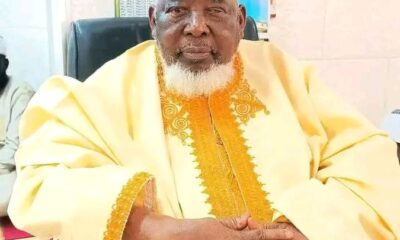
 Death5 months ago
Death5 months agoProminent Nigerian Islamic Scholar, Sheikh Sa’idu Hassan Jingir, Passes Away
-
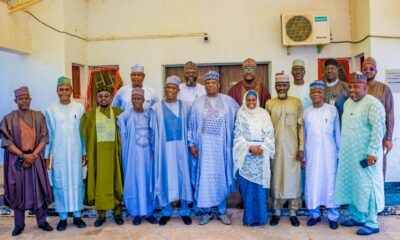
 Politics1 year ago
Politics1 year agoGombe State Inaugurates Human Capital Development Council
-
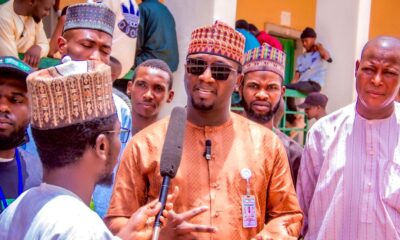
 Politics1 year ago
Politics1 year agoGombe State Launches Presidential Palliative Program (PPP) to Aid Small Businesses
